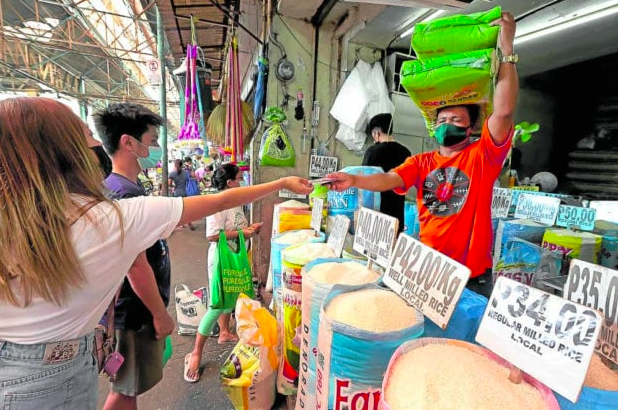Bongbong Marcos on P20 per kilo rice: Coming soon
MANILA, Philippines — President Ferdinand “Bongbong” Marcos Jr. on Thursday said rice at P20 per kilo, which was one of his campaign promises, will soon become a reality.
He issued the remark during the launching of the “Kadiwa ng Pangulo” in Camarines Sur province, where rice being sold in the outlet is at P25 per kilogram.
“Ang aking pangarap na sinabi na bago ako umupo na sana maipababa natin ang presyo ng bigas ng P20, hindi pa tayo umaabot doon, dahan-dahan palapit na. Nasa P25 na tayo, kaunti na lang maibababa natin yan,” Marcos said.
(We have not yet accomplished the mission to bring the price of rice to P20 per kilo, but we’re getting there, little by little. We’re already at P25 per kilo, just a little more, we can bring that down soon.)
He said the government is also working to lower the price of onion, which spiked in recent months.

(INQUIRER file photo / GRIG C. MONTEGRANDE)
The Kadiwa project started as the “Kadiwa ng Pasko” during the Christmas season but was expanded to “Kadiwa ng Pangulo” to further provide consumers fresh and affordable agricultural and fishery products.
Twenty sellers or partners joined the Kadiwa outlet in Camarines Sur. There are also three farmers’ cooperatives, four micro, small medium enterprises and three individual young farmers also selling their products, Malacañang said.
Apart from helping Filipinos cope with the effects of high prices of goods, the project will also help local farmers, fishermen and small enterprises, which were hit hard by the COVID-19 pandemic, Marcos said.
The Kadiwa program allows the public to buy goods at cheaper rates by creating a direct and efficient farm-to-consumer food supply chain, eliminating intermediaries.
Marcos said there are already over 500 Kadiwa stores across the country, and vowed that the government will put up more outlets.
gsg
Disclaimer: The comments uploaded on this site do not necessarily represent or reflect the views of management and owner of Cebudailynews. We reserve the right to exclude comments that we deem to be inconsistent with our editorial standards.
